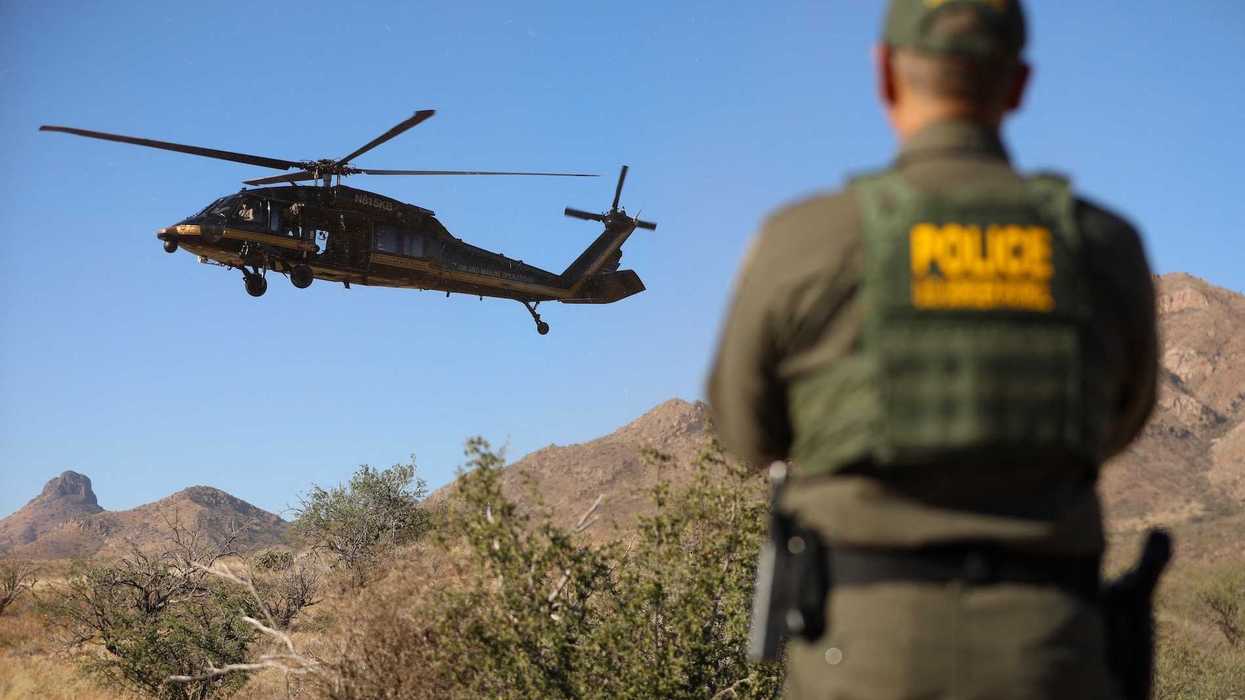
© 2026 Blaze Media LLC. All rights reserved.
White House Hesitation to Take on Assad Regime Demonstrates Lack of Leadership and Strategic Awareness
February 11, 2013
 Syrian President Bashar al-Assad and Iranian President Mahmoud Ahmadinejad (Photo: AFP)
Syrian President Bashar al-Assad and Iranian President Mahmoud Ahmadinejad (Photo: AFP)
When General Dempsey and Secretary Panetta testified last week that President Obama had opposed plans for American support to the Syrian opposition, my heart sank. The president's decision demonstrates not only insensitivity to the mass slaughter of Syrian dissidents and citizens but also a singular lack of serious strategic thinking.
Iran and Syria have been bound together in a tight strategic embrace for many years. The two worked closely to wage the terror war against us and our allies in Iraq, training and arming suicide terrorists (most of whom came across the Syrian border), and providing an operational base for Hezbollah (in Syria) and the Quds Force (in Iran).
So no one should have been surprised when Iran raced to aid Bashar al-Assad when the insurrection broke out two years ago. But the extent of Iranian support, which is expanding even now, is quite remarkable.
The mullahs gave Assad the full benefit of their expertise, sending their most ruthless killers to Damascus, and teaching him the methods they had used against Iranians in 2009-2010, from the use of snipers to the creation of a fanatical internal security force (the Basij), to mastery of internet and cell phone communications in order to track down internal enemies, to mass torture and mass executions.
The Iranians no doubt figured that, since these methods worked so well in Iran, they would surely work just as well in Syria. But it didn't work out that way. The slaughter has been terrible, probably well over one hundred thousand to date. Yet the anti-Assad Syrian fighters, contrary not only to the Iranians' expectations, but to those of most experts, have refused to surrender no matter how high the cost in suffering and death.
Moreover, despite the shameful absence of the United States, the Syrian opposition has received outside support. The Sunni tycoons, notably the Saudis and the Qataris, have provided cash cannon-fodder (prisoners in Saudi Arabia have reportedly been granted early release, and money for their families, if they go to Syria to fight) and weapons.
This is all very grim news for the Iranian regime, which has paid up every time the ante has been raised. Over and over again, Iranian Supreme Leader Ali Khamenei has pledged--and delivered--total support. Limitless funding, the most ruthless killers, all manner of weaponry and advanced technology, were all provided. A few days ago Khamenei confirmed his strategic commitment, and ordered five battalions of fighters (three from Hezbollah, two from the Revolutionary Guards' Quds Force) to deploy. Some of them are already murdering Assad's opponents.
Why is Khamenei so desperate to save Assad? The short answer is: if Assad falls, Khamenei fears that his own regime may follow it into history's ash heap.
At the same meeting in which Khamenei ordered more killers to support Assad, he told his top aides that Hezbollah could probably not last more than a month if the opposition won in Syria. Given the terrorist organization's major role in the slaughter, the Syrian people would not tolerate its continued presence in their country, and the Lebanese would probably behave similarly. There was a time when many Lebanese, Sunni as well as Shi'a, admired Hezbollah, because it provided social services to the poor and declared itself, with considerable justification, the most proven fighting force against Israel. No longer. While a hard core of Shi'ite supporters remain loyal, today the Hezbollahis are widely viewed as killers of Sunni Arabs.
Hezbollah is Iran's foreign legion. It was the spinal column of the terror war that Iran and Syria waged against us and our allies in Iraq. It has performed such sensitive missions as training Al Qaeda, organizing the bloody bombing of the Israeli Embassy and Jewish center in Buenos Aires, and infiltrating hundreds, if not thousands of agents and operatives into our hemisphere via Caracas. Iran's ability to wage proxy war against us would be crippled if Hezbollah were to be destroyed. Moreover, ever since the regime's bloody crackdown on the Iranian opposition, the people have been watching carefully for signs of weakness around the supreme leader. The fall of Assad, and the distraction of Hezbollah, would be to very green lights to the internal opposition in Iran itself.
Bottom Line: the Syrian battlefield is a crucial one in the global war that is being waged against us and our friends and allies. The defeat of Assad and his Iranian allies (and the Russians, too, lest we forget), would have enormous consequences, most of which would be good news to the United States. If you could perform one miracle in this grim world, you couldn't do better than wave a wand and bring down Assad and Khamenei.
No doubt Panetta, Hillary, and Petraeus had such thoughts when they urged the president to support the Syrian opposition. No doubt their hearts sank when Obama said "no way." It certainly enraged the Saudis, as you can see in an op-ed in an official publication. It should enrage all Americans who take national security seriously.
Want to leave a tip?
We answer to you. Help keep our content free of advertisers and big tech censorship by leaving a tip today.
Want to join the conversation?
Already a subscriber?
more stories
Sign up for the Blaze newsletter
By signing up, you agree to our Privacy Policy and Terms of Use, and agree to receive content that may sometimes include advertisements. You may opt out at any time.
Related Content
© 2026 Blaze Media LLC. All rights reserved.
Get the stories that matter most delivered directly to your inbox.
By signing up, you agree to our Privacy Policy and Terms of Use, and agree to receive content that may sometimes include advertisements. You may opt out at any time.






